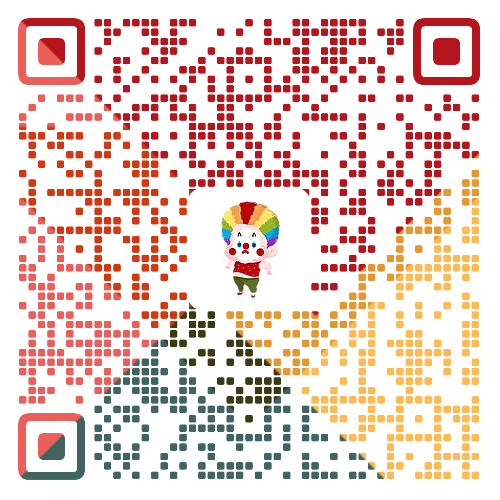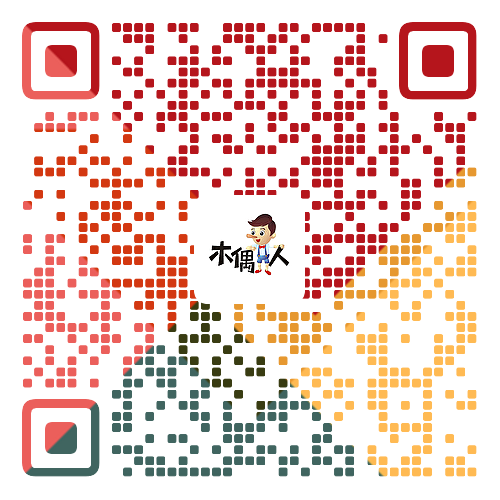一、注册事件的方式
1. 传统方式
利用 on 开头的事件,如: onclick
特点:唯一性
2. 方法监听 方式(addEventListener())
addEventListener() ie9 以上支持,ie9 以下可以用 attachEvent() 来代替
特点:
语法:
1
| eventTarget.addEventListener(type, listener[, useCapture])
|
eventTarget.addEventListener() 方法将指定的监听函数注册到 eventTarget(目标对象)上,当该对象触发指定事件时,就会执行事件处理函数。type : 事件类型 字符串,比如 click、mouseover,注意这里不要带 onlistener : 事件处理函数,事件发出时,会调用该监听函数useCapture : 可选参数,是一个布尔值,默认为 false(冒泡阶段),为 true(捕获阶段)
1
2
3
4
5
6
7
8
9
10
11
12
13
14
| <div class="demo">
<button>方法监听事件1</button>
<button>方法监听事件2</button>
</div>
<script>
var buts = document.querySelectorAll('button');
buts[1].addEventListener('click', function () {
alert('注册事件1');
})
buts[1].addEventListener('click', function () {
alert('注册事件2');
})
</script>
|
二、 删除事件
1. 传统方法
1
| enentTarget.onclick = null;
|
1
2
3
4
5
6
7
8
9
10
11
12
13
| <div class="demo">
<div>删除事件1</div>
<div>删除事件2</div>
<div>删除事件3</div>
</div>
<script>
var divs = document.querySelector(".demo").querySelectorAll("div");
divs[0].onclick = function () {
alert("删除弹框事件");
this.onclick = null;
};
</script>
|
2. 方法监听
1
| eventTarget.removeEventListener(type, listener[, useCapture]);
|
注意:
1
2
3
4
5
6
7
8
9
10
11
12
13
14
15
16
17
18
| <div class="demo">
<div>删除事件-传统方式</div>
<div>删除事件-监听方式</div>
</div>
<script>
var divs = document.querySelector('.demo').querySelectorAll('div');
divs[0].onclick = function(){
alert('删除弹框事件');
this.onclick = null;
}
divs[1].addEventListener('click', fn);
function fn(){
alert('删除弹框事件1');
divs[1].removeEventListener('click', fn);
}
|
三、 DOM 事件流
DOM 事件流:就是事件传播的顺序
JS 事件流 只能执行 捕获 或者 冒泡 其中的一个阶段:
- 捕获阶段:
- 事件执行顺序:document > html > body > father > son
- 冒泡阶段:
- 事件执行顺序:son > father > body > html > document
注意:
onclick 和 attachEvent 只能得到 冒泡阶段onblur 、 onfocus 、 onmousenter 、 onmouseleave 没有冒泡阶段
1
2
3
4
5
6
7
8
9
10
11
12
13
14
15
16
17
18
19
20
21
22
23
24
| <div class="father">
<div class="son">son 盒子</div>
</div>
<script>
var father = document.querySelector('.father');
var son = document.querySelector('.son');
father.addEventListener('click', function () {
alert('father')
}, true)
son.addEventListener('click', function () {
alert('son')
}, true)
father.addEventListener('click', function () {
alert('father')
})
son.addEventListener('click', function () {
alert('son')
})
</script>
|
四、 事件对象
事件对象 : 事件发生后,一系列和事件相关的数据存储的集合对象
1
2
3
| eventTarget.onclick = function (event) {};
eventTarget.addEventListener("click", function () {});
|
event 就是时间对象,也可以写成 e 或者 evt,兼容 ie9 以上浏览器
event 是一个形参,不需要传递实参进去, 是系统自动创建的
1. 事件对象的属性和方法
| 时间对象属性方法 | 说明 |
|---|
| e.target | 返回 触发 事件的对象 |
| e.type | 返回时间的类型 |
| e.prevetDefault() | 该方法阻止默认事件(默认行为) 标准,比如 不让连接跳转 |
| e.stopPropagation() | 阻止冒泡标准 |
注意:
this : 返回的是绑定事件的对象target : 返回的是触发事件的对象
1
2
3
4
5
6
7
8
9
10
11
12
13
14
15
16
17
18
19
| <div>123</div>
<ul>
<li>abc</li>
<li>abc</li>
<li>abc</li>
</ul>
<script>
var ul = document.querySelector('ul');
ul.addEventListener('click', function (e) {
console.log(this);
console.log(e.target);
})
</script>
|
阻止默认事件:
1
2
3
4
5
6
7
8
9
10
11
12
13
14
15
16
17
18
19
20
21
22
23
24
25
26
27
28
29
30
31
| <div>123</div>
<a href="http://www.baidu.com">百度</a>
<form action="http://www.baidu.com">
<input type="submit" value="提交" name="sub">
</form>
<script>
var div = document.querySelector('div');
div.addEventListener('click', fn);
div.addEventListener('mouseover', fn);
div.addEventListener('mouseout', fn);
function fn(e) {
console.log(e.type);
}
var a = document.querySelector('a');
a.addEventListener('click', function(e) {
e.preventDefault();
})
a.onclick = function(e) {
e.preventDefault();
return false;
alert(11);
}
</script>
|
2. 阻止冒泡 stopPropagation()
语法:
需要阻止那个元素冒泡,就在那个元素方法中添加 e.stopPropagation();
1
2
3
4
5
6
7
8
9
10
11
12
13
14
15
16
17
18
19
| <div class="father">
<div class="son">son儿子</div>
</div>
<script>
var son = document.querySelector('.son');
son.addEventListener('click', function (e) {
alert('son');
e.stopPropagation();
});
var father = document.querySelector('.father');
father.addEventListener('click', function () {
alert('father');
});
document.addEventListener('click', function () {
alert('document');
})
</script>
|
3. 事件委托
事件委托: 不是每个子节点单独设置事件监听器,而是事件监听器设置在其父节点上,然后利用冒泡原理影响设置每个子节点
1
2
3
4
5
6
7
8
9
10
11
12
13
14
15
16
17
| <ul>
<li>知否知否,点我应有弹框在手!</li>
<li>知否知否,点我应有弹框在手!</li>
<li>知否知否,点我应有弹框在手!</li>
<li>知否知否,点我应有弹框在手!</li>
<li>知否知否,点我应有弹框在手!</li>
</ul>
<script>
var ul = document.querySelector('ul');
ul.addEventListener('click', function(e) {
alert('知否知否,点我应有弹框在手!');
e.target.style.backgroundColor = 'pink';
})
</script>
|
五、 常用 鼠标、键盘 事件
1. 鼠标事件
| 鼠标事件 | 触发条件 |
|---|
| onclick | 鼠标左键点击触发 |
| onmouseover | 鼠标经过 |
| onmouseout | 鼠标离开 |
| onfocus | 获取鼠标焦点 |
| onblur | 失去鼠标焦点 |
| onmousemove | 鼠标移动 |
| onmouseup | 鼠标弹起 |
| onmousedown | 鼠标按下 |
| contextmenu | 禁止鼠标右键菜单 |
| selectstart | 禁止鼠标选中 |
禁用整个网页的鼠标右键菜单:
1
2
3
| document.addEventListener("contextmenu", function (e) {
e.preventDefault();
});
|
禁止鼠标选中文字:
1
2
3
| document.addEventListener("selectstart", function (e) {
e.preventDefault();
});
|
2. 鼠标事件对象 (MouseEvent)
| 鼠标事件对象 | 说明 |
|---|
| e.clientX | 返回鼠标相对于 浏览器窗口 可视区的 X 坐标 |
| e.clientY | 返回鼠标相对于 浏览器窗口 可视区的 Y 坐标 |
| e.pageX | 返回鼠标相对于 文档页面的 X 坐标 |
| e.pageY | 返回鼠标相对于 文档页面的 Y 坐标 |
| e.screenX | 返回鼠标相对于 电脑屏幕的 X 坐标 |
| e.screenY | 返回鼠标相对于 电脑屏幕的 Y 坐标 |
代码示例
1
2
3
4
5
6
7
8
9
10
11
12
13
14
15
16
17
18
19
20
21
22
23
24
25
26
27
28
29
30
| <!DOCTYPE html>
<html lang="en">
<head>
<meta charset="UTF-8" />
<meta http-equiv="X-UA-Compatible" content="IE=edge" />
<meta name="viewport" content="width=device-width, initial-scale=1.0" />
<title>Document</title>
<style>
.ts {
position: absolute;
width: 40px;
}
</style>
</head>
<body>
<img src="https://img.pupper.cn/img/202112211755139.gif" alt="" class="ts">
<script>
var ts = document.querySelector('.ts')
document.addEventListener('mousemove', function(e){
ts.style.left = e.clientX - 15 + "px";
ts.style.top = e.clientY - 15 + "px";
})
</script>
</body>
</html>
|
3. 键盘事件
| 键盘事件 | 触发条件 |
|---|
| onkeyup | 某个按键松开时触发 |
| onkeydown | 某个按键按下时触发 |
| onkeypress | 某个按键按下时触发,但是不识别功能键,
如: ctrl 、 shift 、箭头等 |
注意:
- 执行顺序: keydown —-> keypress —-> keyup
- keypress 不识别功能键
1
2
3
4
5
6
7
8
9
| document.addEventListener('keyup', function () {
console.log('按键弹起了');
})
document.addEventListener('keydown', function () {
console.log('按键按下了');
})
document.addEventListener('keypress', function () {
console.log('按的不是功能键');
})
|
4. 键盘事件对象
keyup 和 keydown 获取的 KeyCode 不区分大小写字母keypress 获取的 KeyCode 区分大小写字母 ,但是不识别 键盘 功能键
1
2
3
4
5
6
7
|
document.addEventListener('keyup', function (e) {
console.log(e.keyCode);
})
document.addEventListener('keypress', function (e) {
console.log(e.keyCode);
})
|
案例 — 按 S 输入框获取焦点
代码示例
1
2
3
4
5
6
7
8
9
10
11
12
13
14
15
16
17
18
19
20
21
22
23
24
25
26
27
28
29
30
31
32
33
34
35
36
37
38
39
40
41
42
43
44
45
46
47
48
49
50
51
52
53
54
| <!DOCTYPE html>
<html lang="en">
<head>
<meta charset="UTF-8" />
<meta http-equiv="X-UA-Compatible" content="IE=edge" />
<meta name="viewport" content="width=device-width, initial-scale=1.0" />
<title>Document</title>
<style>
* {
margin: 0;
padding: 0;
box-sizing: border-box;
}
.demo {
width: 240px;
height: 25px;
margin: 50px auto;
}
.demo input {
float: left;
width: 200px;
height: 25px;
border: 1px solid saddlebrown;
outline: none;
padding: 0 10px 0 10px;
}
.demo button {
height: 25px;
width: 40px;
border: none;
background-color: saddlebrown;
color: #fff;
}
</style>
</head>
<body>
<div class="demo">
<input type="text">
<button>搜索</button>
</div>
<script>
var inp = document.querySelector('input');
var but = document.querySelector('button');
document.addEventListener('keyup', function(e){
if(e.keyCode == 83){
inp.focus();
}
})
</script>
</body>
</html>
|
案例 —- 输入框输入内容,显示大文字
代码示例
1
2
3
4
5
6
7
8
9
10
11
12
13
14
15
16
17
18
19
20
21
22
23
24
25
26
27
28
29
30
31
32
33
34
35
36
37
38
39
40
41
42
43
44
45
46
47
48
49
50
51
52
53
54
55
56
57
58
59
60
61
62
63
64
65
66
67
68
69
70
71
72
73
74
75
76
77
78
79
80
81
82
83
84
85
86
87
88
89
90
91
92
93
94
95
96
97
98
99
100
| <!DOCTYPE html>
<html lang="en">
<head>
<meta charset="UTF-8" />
<meta http-equiv="X-UA-Compatible" content="IE=edge" />
<meta name="viewport" content="width=device-width, initial-scale=1.0" />
<title>Document</title>
<style>
* {
margin: 0;
padding: 0;
box-sizing: border-box;
}
.demo {
position: relative;
width: 240px;
height: 25px;
margin: 200px auto;
}
.demo input {
float: left;
width: 200px;
height: 25px;
border: 1px solid saddlebrown;
outline: none;
padding: 0 10px 0 10px;
}
.demo button {
height: 25px;
width: 40px;
border: none;
background-color: saddlebrown;
color: #fff;
}
.big {
display: none;
position: absolute;
top: -40px;
width: 200px;
height: 30px;
border: 1px solid rgba(0, 0, 0, .2);
box-shadow: 0 2px 4px rgba(0, 0, 0, .2);
padding: 5px 0;
font-size: 18px;
line-height: 20px;
color: #333;
}
.big::before {
content: '';
width: 0;
height: 0;
position: absolute;
top: 28px;
left: 18px;
border: 8px solid #000;
border-style: solid dashed dashed;
border-color: rgb(255, 255, 255) transparent transparent;
}
</style>
</head>
<body>
<div class="demo">
<input type="text">
<button>搜索</button>
<div class="big"></div>
</div>
<script>
var inp = document.querySelector('.demo').querySelector('input');
var big = document.querySelector('.big');
inp.addEventListener('keyup', function (e) {
if (this.value != '') {
big.style.display = 'block';
big.innerHTML = this.value;
} else {
big.style.display = 'none';
}
})
inp.addEventListener('focus', function (e) {
if (this.value != '') {
big.style.display = 'block';
}
})
inp.addEventListener('blur', function (e) {
big.style.display = 'none';
})
</script>
</body>
</html>
|














